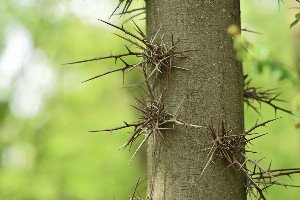Ferry Kristian, Elly Purnamasari, Oon Darmansyah
DIVERSIFIKASI USAHA KELUARGA NELAYAN DI DESA KELUMPANG KECAMATAN MOOK MANAAR BULATN KABUPATEN KUTAI BARAT
Introduction
Diversifikasi usaha keluarga nelayan di desa kelumpang kecamatan mook manaar bulatn kabupaten kutai barat. Analisis diversifikasi usaha keluarga nelayan di Desa Kelumpang, Kutai Barat. Temukan jenis pekerjaan sampingan (petani), curahan waktu kerja, dan motivasi akibat tuntutan ekonomi.
Abstract
Tujuan penelitian ini untuk mengetahui jenis pekerjaan anggota keluarga nelayan, mengetahui curahan waktu kerja dari keluarga nelayan, dan mengetahui motivasi kerja pada keluarga nelayan di Desa Kelumpang Kecamatan Mook Manaar Bulatn Kabupaten Kutai Barat. Penelitian ini dilaksanakan pada bulan Juli 2022 hingga Agustus 2023. Sampel berjumlah 20 keluarga nelayan dengan menggunakan teknik pengambilan sampel purposive sampling. Hasil penelitian ini menunjukan jenis pekerjaan keluarga nelayan Desa Kelumpang baik yang dilakukan oleh keluarga inti maupun keluarga luas adalah sebagai nelayan. Pekerjaan sampingan keluarga inti sebagian besar sebagai petani, tetapi ada juga pembudidaya dan karyawan honor, sedangkan keluarga luas didominasi juga sebagai petani, tetapi ada juga yang bekerja sebagai tukang dang petugas kebersihan. Curahan waktu kerja keluarga inti yang utama rata-rata 7,56 jam/hari, sedangkan untuk curahan waktu kerja sampingan rata-rata 3,7 jam/hari, sedangkan curahan waktu kerja keluarga luas dengan pekerjaan utama dengan rata-rata 7 jam/hari, sedangkan untuk curahan waktu kerja sampingan dengan rata-rata 1,8 jam. Pada keluarga inti termotivasi karena adanya tuntutan ekonomi, sedangkan pada keluarga luas termotivasi karena pendapatan keluarga berkurang.
Review
The paper titled "DIVERSIFIKASI USAHA KELUARGA NELAYAN DI DESA KELUMPANG KECAMATAN MOOK MANAAR BULATN KABUPATEN KUTAI BARAT" addresses a highly relevant topic concerning the livelihood strategies of fishing communities, particularly focusing on business diversification. The research aims to comprehensively map the types of work undertaken by fisher family members, quantify their work allocation, and identify the underlying motivations for these activities in Kelumpang Village. Conducted over a significant period from July 2022 to August 2023, the study utilized a purposive sampling approach involving 20 fisher families, suggesting a focused qualitative or mixed-methods descriptive inquiry into this crucial aspect of rural resilience. The findings presented in the abstract offer a clear descriptive overview of the diversification patterns. It reveals that while fishing remains the primary occupation for both nuclear and extended family members, significant diversification exists. Nuclear families predominantly engage in farming as a side job, alongside some cultivating and honorary employee roles, while extended families also lean towards farming, complemented by jobs such as tradesmen and cleaners. The study meticulously quantifies work allocation, indicating that main jobs for nuclear families average 7.56 hours/day and side jobs 3.7 hours/day, while extended families dedicate approximately 7 hours/day to main jobs and 1.8 hours/day to side activities. Crucially, the motivations for diversification are differentiated: nuclear families are driven by general economic demands, whereas extended families respond specifically to reduced family income, providing a nuanced perspective on their adaptive strategies. While the abstract provides a solid descriptive foundation, the full paper would benefit from a deeper analytical engagement with the concept of "diversification" implied by the title. The abstract effectively *shows* that diversification occurs, but it doesn't elaborate on the *strategies*, *effectiveness*, or *challenges* of this diversification. Future work could explore the economic contributions of these diversified activities, the factors influencing the choice of specific side jobs, and the potential impact of these strategies on overall household welfare and resilience. Additionally, while motivations are identified, a more in-depth discussion on the interplay between "economic demands" and "reduced family income" could further enrich the understanding of decision-making processes. Despite these suggestions for deeper analysis, the research offers valuable baseline data and insights into the labor allocation and motivations within fisher families, laying important groundwork for future policy interventions and community development initiatives.
Full Text
You need to be logged in to view the full text and Download file of this article - DIVERSIFIKASI USAHA KELUARGA NELAYAN DI DESA KELUMPANG KECAMATAN MOOK MANAAR BULATN KABUPATEN KUTAI BARAT from BIOPROSPEK: Jurnal Ilmiah Biologi .
Login to View Full Text And DownloadComments
You need to be logged in to post a comment.
Top Blogs by Rating
Your Dynamic DNA: The Adapting...
By Sciaria
Your DNA's Ancient Story: Unlo...
By Sciaria
Are You Just a Colony? The Int...
By Sciaria
Favorite Blog
Mycorrhizal Networks: Unearthi...
By Sciaria
Big Data's Unintended Conseque...
By Sciaria
Unlocking Life's Source Code:...
By Sciaria
Related Research
Fostering emotional intelligence among students from consanguineous families: teachers' strategies
Tinjauan desain kerajinan perak di desa mijen kecamatan kebonagung kabupaten demak
Scotland’s enlightenment in australia: scottish moral and political thought from macquarie to menzies
Share
Notice Board
- PENGUATAN UMKM DESA DUKUHBENDA MELALUI OPTIMALISASI KERAJINAN TOTE BAG ECOPRINT
- PERSEBARAN PRIMATA DI KAWASAN FRAGMENTASI HUTAN SEPANJANG SUNGAI TUNAN, KECAMATAN WARU, KABUPATEN PENAJAM PASER UTARA, KALIMANTAN TIMUR
- RAINFALL SIMULATIONS ON STEEP CALANCO BADLANDS TO GENERATE INPUT FOR EROSION MODELLING





